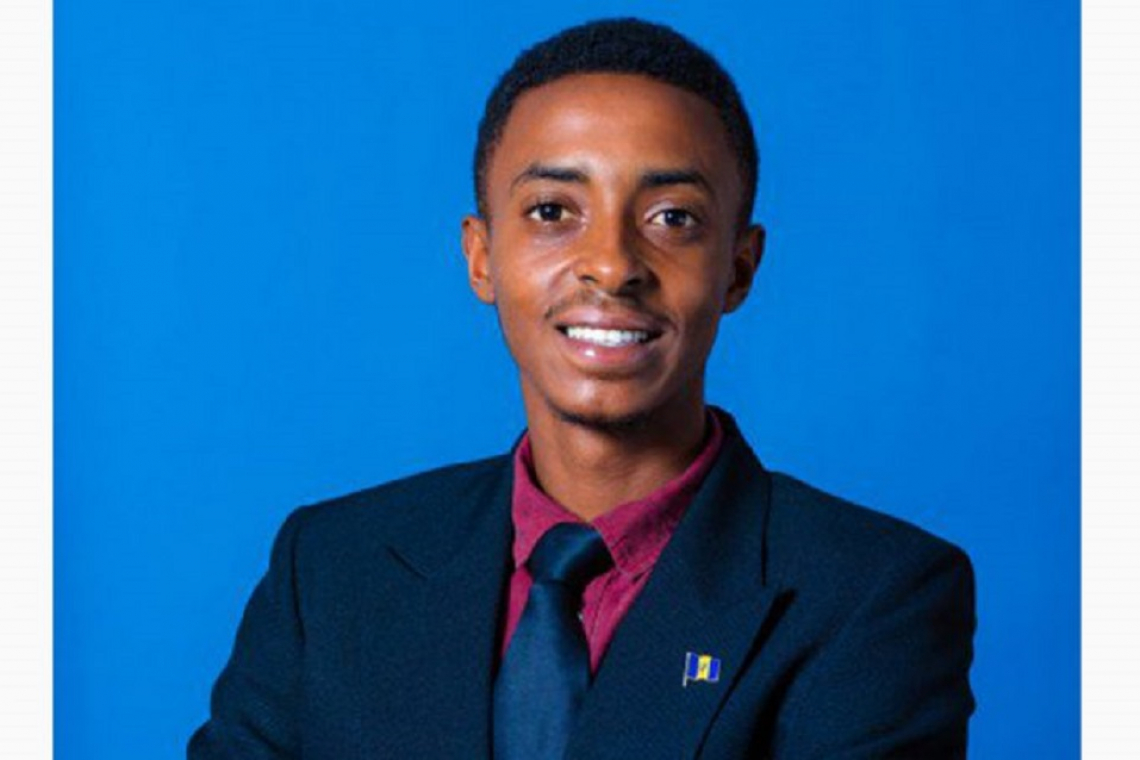Economist Kemar Stuart.
BRIDGETOWN, Barbados--The main task ahead for the Barbados economy is for government to build out other sectors rather than continuing to focus heavily on tourism, an economist has suggested.
But Kemar Stuart maintains doubt that the Mia Mottley administration would take the required policy direction necessary to drive the economy in the short-to-medium term as it continues to focus on managing the COVID-19 pandemic.
He was reacting to the latest Central Bank report, which recorded a cataclysmic 90 per cent fall in long-stay visitor arrivals over the last three quarters of 2020, reducing arrivals by 71 per cent over the course of the year.
In his economic review of 2020 on Wednesday, Governor of the Central Bank of Barbados Cleviston Haynes said depressed tourism activity, a dampening of consumption and delayed investment projects led to a sharp contraction in the economy, elevated jobless levels, subdued government revenues and amplified our economic vulnerabilities.
The economy declined by 17.6 per cent last year but is estimated to grow by “below five per cent,” according to the Central Bank.
The report also showed that government shored up its international reserves, which reached a comfortable BDS 2.7 billion (US $1.35 billion) at the end of December last year amid massive borrowing – BDS 980 million (US $490 million) from multinational financial institutions – driving up the country’s debt to around 144 per cent of gross domestic product (GDP).
Stuart said coming out of that report, the main pillar of survival for the Barbados economy is “the ability to mobilise debt support from the International Monetary Fund (IMF) through the Barbados Economic Recovery and Transformation (BERT) programme.”
He highlighted five examples to explain the “life support” the IMF and other international financial institutions are currently providing the economy: changes to the Central Bank Act to limit the bank’s role in financing government’s roles in the economy, the inability to borrow from an “over-leveraged” National Insurance Scheme (NIS), a dampened bond market, an ineffective stock market and an inability to borrow from any private capital market in any substantial way.
Stuart said the major challenge ahead was “getting other pillars of the economy outside of tourism, working.”
But, he said: “Given the uncertainty of the pandemic and a pending roll-out of a vaccine programme, government may continue to waver on a policy direction to build out and drive the local economy. This drive may wean Barbados off the worrying trend of IMF life support.”
In his outlook, Haynes had also touted the need for urgent growth of other industries, stating that “as we move forward, we have to reduce our economic vulnerabilities.”
The central banker cited alternative energy and the adoption of technology and digital transformation as areas that would help the country emerge from the current economic climate created by the pandemic.
Stuart is of the view that slow and inefficient public sector processes, lack of financial guarantees and adequate support from the government, no new investment and lack of reform to investment laws also continued to delay critical progress in the Barbados economy.
He said: “The Central Bank Governor constantly mentioned capital works programmes as a way to revive the dire economy and bring growth over the medium term and I firmly agree. However, the government has not been pulling weight.”
There is also a “restrictive clause on spend towards capital works programmes as a condition of BERT, and unless renegotiated at recent meetings, this spending ceiling will inhibit government’s ability to do major expansions of spending in the economy for 2021,” the economist argued.
In relation to government revenue, which declined by about 12 per cent last year, due mainly to lower collections of transaction-based taxes, Stuart said: “It is clear that if the ravishing of revenue continues by prolonged uncertainty of the pandemic, the country will need to run additional deficits and borrow additional debt from foreign institutions to finance the shortfalls to come in 2021.
“The governor did mention that what government makes over what government spends coupled with debt targets will remain under review in 2021. This scenario as described by the late professor Owen Arthur is a ‘borrowing relationship’ with the IMF.”
Stuart’s comments echo the views of regional economic advisor Marla Dukharan, who suggested in her January economic outlook letter that when it comes to tourism, government should consider focusing “solely” on the Welcome Stamp initiative.
Earlier, Dukharan had also suggested that more interest be given to making the country self-sufficient in the area of agriculture, while building out solar and renewable energy, the offshore financial services sector and the digital economy.
Dukharan said: “Barbados is on solid ground externally and fiscally, thanks to strong and decisive leadership. We therefore don’t even need to continue to take the risks inherent in a five-day quarantine.
“Welcome Stampers are more likely to agree to and comply fully with a two-week quarantine, because so much more is at stake.
“Why not focus solely on this market, at least until the pandemic is brought under control?”
Dukharan also noted that the recent second wave of COVID-19 infections and the coming lockdown would make for a slower than projected recovery.
She said: “COVID-related spending is expected to reach 2.5 per cent of GDP in this financial year. An increase in the extended arrangement with the IMF will provide financing for the newly lowered primary fiscal deficit target of one per cent of GDP. Debt-to-GDP will increase to 146 per cent in financial year 2020-2021, and will not decline to 107 per cent until 2025.” ~ Barbados Today ~







